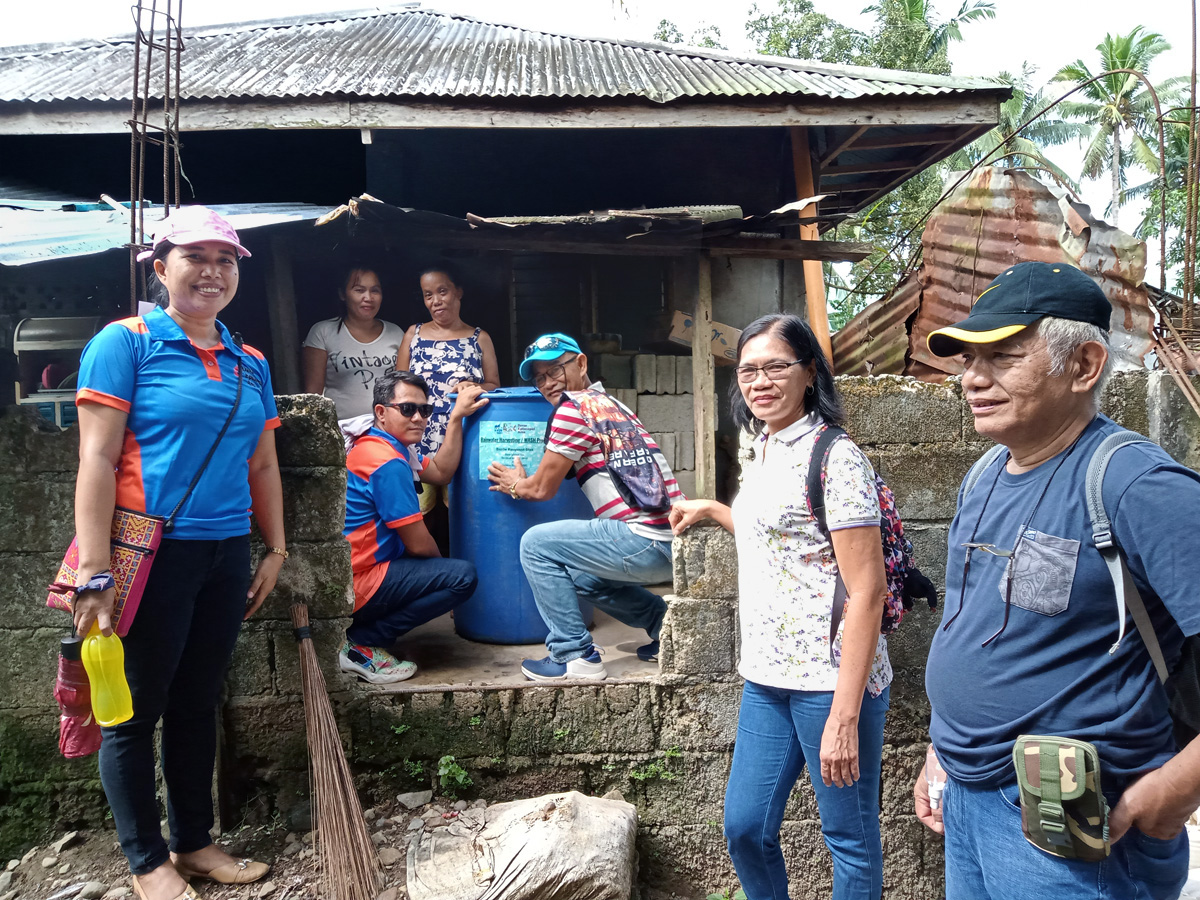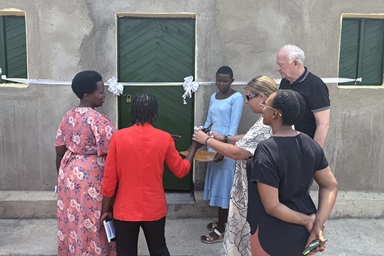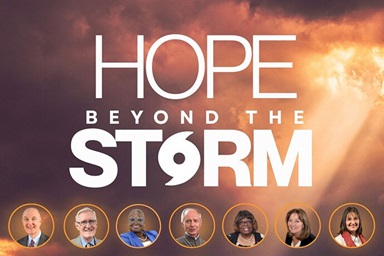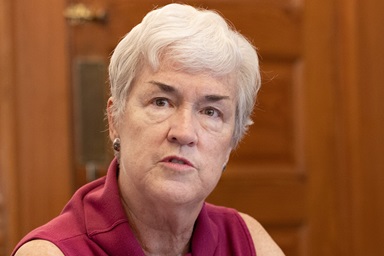Key points:
- The Davao Area Disaster Management Office’s disaster management team distributed drums to harvest rainwater to more than 30 families and three community centers.
- The church rolled out its WASH project in vulnerable sectors in Barangay Novele, Rosario and Agusan del Sur, where clean water is scarce.
- The Rev. Dan Reuben L. Sison said the majority of the recipients were senior citizens, including some with disabilities.
Vulnerable families in the Davao Area now have access to clean water thanks to a rainwater-harvesting project led by The United Methodist Church in the Philippines.
Without a sustainable water source, people living in Barangay Novele and other nearby neighborhoods suffered from sanitation- and health-related concerns.
The church rolled out its WASH project in vulnerable sectors in Barangay Novele, Rosario and Agusan del Sur with 33 households receiving a 210-liter plastic drum for collecting rainwater. Three 2,000-liter polyethylene drums also were given to three community centers.
The Rev. Dan Reuben L. Sison, Davao Area disaster management project assistant, said the majority of the recipients were senior citizens, including some with disabilities. The beneficiaries came from various faith affiliations.
Davao Area Bishop Israel M. Painit and volunteers with the Disaster Management Office of the North East District of the East Mindanao Philippines Conference were on hand for the distribution.
“The WASH project is a critical initiative aimed at addressing water-related crises in affected areas,” Painit said. “Through this program, we strive to improve access to clean water, enhance sanitation facilities and promote proper hygiene practices, especially in areas where the poverty rate is so high, like in the Davao Area.
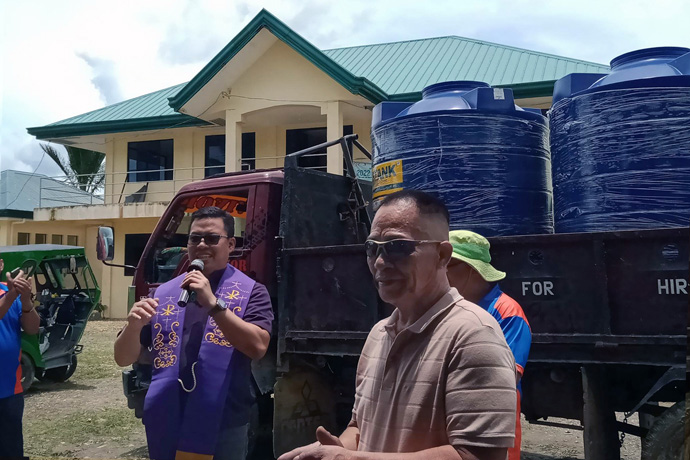
“With the work and ministries that we have been extending to those communities with crisis of clean water, we can make a meaningful impact on the lives of those in need, ensuring healthier communities and sustainable development.”
The disaster office engaged with the community of Novele to provide the larger rainwater-harvesting tanks for their evacuation building and two daycare centers.
The Davao Area office recommended providing the rainwater harvesting drums to those families that are led by people with disabilities to mitigate the impact of the limited availability of water.
Sison said that prior to the project, the recipients used to store rainwater in pails or basins, which held very little. During the first assessment, the team discovered that there was no fresh water source that could meet the needs of residents. Sison said that according to barangay officials, they used to have a source of potable water many years ago, but because of the proliferation of mining companies in the area, water has become scarce. Mining industries use excessive water as part of the refining process for gold.
“Residents attempted to solve this situation by digging wells within their yards,” Sison said. “However, the well water is very turbid to muddy and is not even fit for laundry. That’s when they turned to rainwater for most of their household needs; including for drinking for those without enough money to buy filtered or bottled water.”
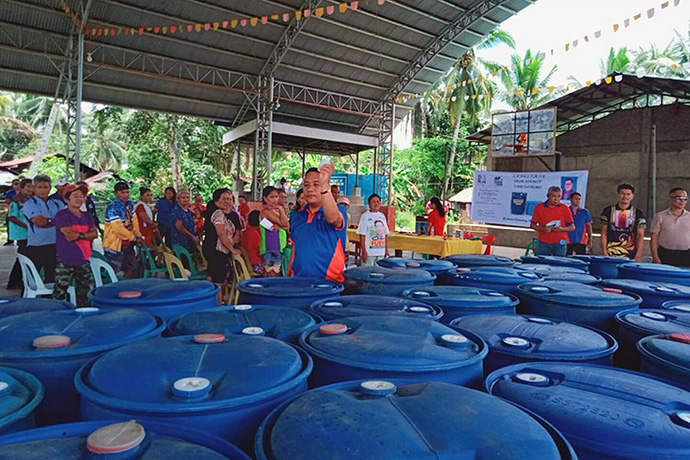
The WASH project was supported by funds from a 2022 grant from the United Methodist Committee on Relief. The grant for the Davao Episcopal Area Disaster Management Office included a provision for small, low-lying mitigation projects such as this one, which cost about $3,600 U.S.
“Reinforcing access to water for the most vulnerable populations of Barangay Novele, including children and persons with disabilities, is an example of how mitigation programming can increase community resilience to disaster and even prevent harmful events such as outbreaks of water-borne illness,” said Katie Hills-Uzoka, director of UMCOR’s international disaster response.
Sison said the church team returned to the neighborhoods a month after the distribution of the drums to monitor and evaluate the impact of the project.
“Six volunteers from Anoling United Methodist Church came to interview beneficiaries (who) gave their heartfelt gratitude to UMC and UMCOR for providing them water containers,” he said.
Gemma Pendon, a teacher and daycare worker in the community, expressed her gratefulness for the new rainwater drums.
Subscribe to our
e-newsletter
“Finally, the center now has a proper impoundment for rainwater so that my pupils can be taught to observe and practice proper hygiene.”
The project also installed water lines to the restroom and sink.
Sison said that people in the Novele community value water more than anywhere he has been. “For them, water is life. Let us value water as they do.”
Dan Ela, disaster management coordinator for the Davao Area, said the project is making a difference
“Water is one of the most critical lifelines for people and communities. This rain-harvesting project provides the most vulnerable of Novele residents some respite in ensuring that they have better access to this life-giving resource.”
Bishop Painit said he is proud of the project and the positive change that the church is making in the world.
“Despite the current situation and concerns we are facing as a church, we can achieve the goal of providing clean water for all and (be) deliberate in our efforts to address issues of human suffering due to hunger and poverty.”
Mangiduyos is a communicator in the Philippines.
News media contact: Julie Dwyer at newsdesk@umnews.org. To read more United Methodist news, subscribe to the free Daily or Weekly Digests.

